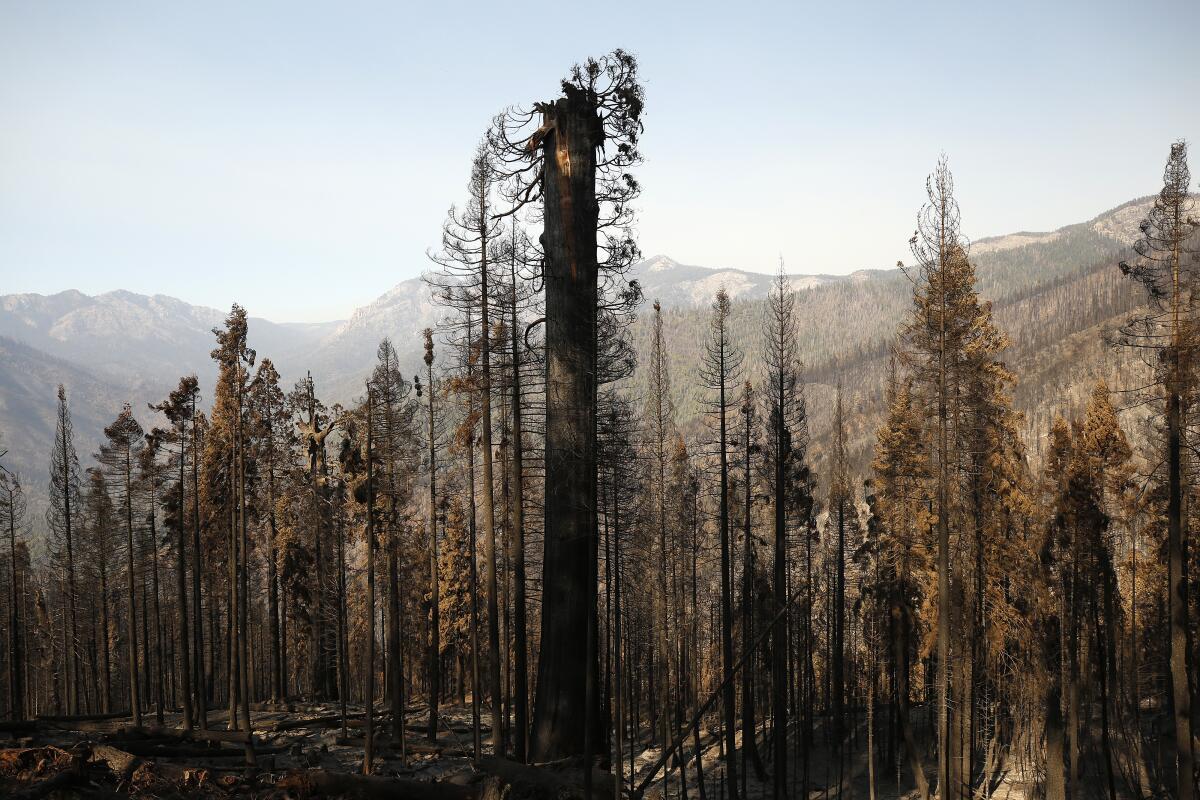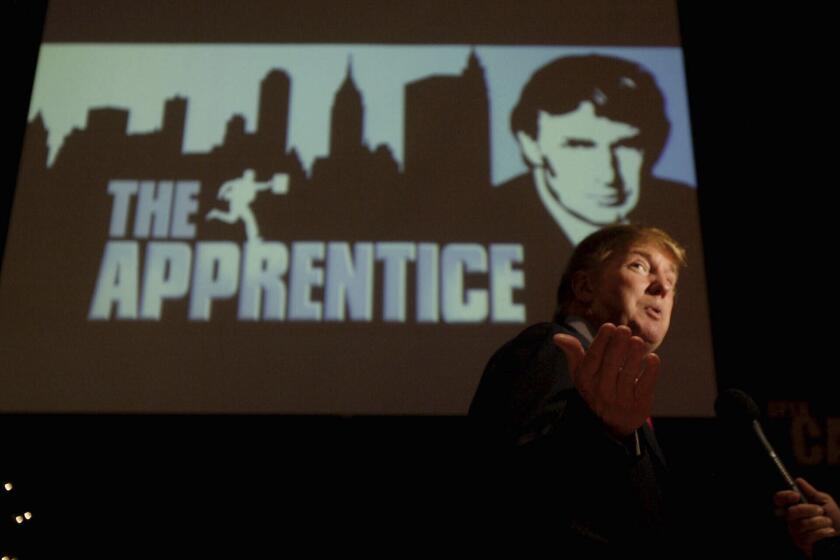Can 2,500-year-old sequoias be saved by 25-year-old climate activists?

Good morning. I’m Paul Thornton, and it is Saturday, Sept. 25, 2021. Today is the 131st birthday of Sequoia National Park, where most of its namesake ancient trees are still alive despite a second straight summer of assault from wildfires. Let’s take a look back at the week in Opinion.
Some of the giant sequoias in California’s Sierra Nevada germinated around the time the Roman Republic, predecessor to the empire, came into existence. The trees have survived wildfires and droughts before — even so-called megadroughts lasting hundreds of years — but they may finally succumb to climate change, and soon. Those of us preemptively grieving before the last groves of these gigantic trees inevitably burn away are almost certainly lucky enough to have vivid firsthand memories of standing in the shadow of these ancient life forms and feeling at once utterly insignificant and exhilarated.
What’s required to feel this kind of grief is a lesser version of what these trees have in abundance — age. You have to be old enough to remember what it was like in California when fires were mainly seasonal, more manageable and rarely burned with the intensity required to imperil 2,500-year-old trees. You have to remember a time when you could reliably plan a summer trip to the Sierras without fearing that a national park would suddenly close and evacuate visitors out of the path of an oncoming megafire.
Those of us over a certain age grieve for a reality we once experienced. Young people, on the other hand, were born into a world gripped by the climate crisis. For them, the grief, hope and other emotions typically expressed by older Americans over global warming are of no use.
Writing on The Times’ op-ed page, 25-year-old Daniel Propp identifies the only productive response by people like him — becoming an activist: “Beyond hope there is more than despair. There is determination, realism and action. There is a generation raised amid the ravages of a changing climate making every effort — a constant effort — to prevent the inevitable. The ship may sink, but we are going to swim like hell toward shore.”
It’s almost poetic: If anything saves these ancient trees, it could be the activism of young people like Propp. We should all be rooting for him.
Introducing “Hear Me Out,” a new Times video series. As the newspaper’s letters editor, I’ve been struck over the years by the experiences shared by readers who’ve identified themselves as teachers, doctors, parents, Holocaust survivors and much more. Our new series gives a video platform to certain letter writers to expand on their arguments and experiences in ways that add another dimension to our journalism. The first installment is from a psychiatrist whose pastor tried to get help for a homeless man who physically and verbally assaulted him outside his church. L.A. Times
We’re 18 months into the pandemic and still talking about anti-vaxxers — specifically, people who would really just rather not get their shots but are using religious exemptions to bypass mandates, including thousands of Los Angles police and fire employees refusing to comply with city orders. Columnist Robin Abcarian assures those faithful conscientious objectors that, yes, Jesus himself would have gotten a COVID-19 vaccine, and The Times’ editorial board declares, “There is no Church of Moderna Disbelievers.”
Supreme Court justices insist they’re not partisan hacks, but their behavior suggests otherwise. Erwin Chemerinsky responds to Justice Amy Coney Barrett’s complaint about the perception of her and her colleagues: “The reality is that time and again the court’s Republican majority has handed down decisions strongly favoring Republicans in the political process. Does Barrett really expect people to believe that is a coincidence?” L.A. Times
Enjoying this newsletter? Consider subscribing to the Los Angeles Times
Your support helps us deliver the news that matters most. Become a subscriber.
For God’s sake, didn’t we just have a recall over something like this? San Francisco Mayor London Breed was caught in a bar with her face uncovered, and her response was to berate critics pointing out she had flouted her own city’s indoor mask rules. The conservative political magazine piece by Charles C. W. Cooke almost writes itself: “As a result of her position at the sharp head of the ‘fun police,’ Mayor Breed has the most responsibility to follow the law of anyone in San Francisco. And though it may be irksome, I think that the same goes for the celebrities, TV anchors, CEOs, and members of the United States Congress who have been lecturing us for nearly two years now about the need to muck in, but who were apparently happy to forget all that they had said once the photographers showed up.” National Review
Abusing migrants while on horseback? That fits with the Border Patrol’s long history of brutality. To the public the photos of Border Patrol agents using horse reins as a whip against Haitian migrants in Texas is shocking, but it really isn’t anything new for what’s been called America’s most out-of-control law enforcement agency. “Based on this abysmal track record, Congress should be skeptical of any [Department of Homeland Security] internal review and conduct an independent investigation of Border Patrol’s Del Rio disgrace,” write Sarah Turberville and Chris Rickerd. L.A. Times
Stay in touch.
If you’ve made it this far, you’re the kind of reader who’d benefit from subscribing to our other newsletters and to the Times.
As always, you can share your feedback by emailing me at [email protected].
A cure for the common opinion
Get thought-provoking perspectives with our weekly newsletter.
You may occasionally receive promotional content from the Los Angeles Times.




